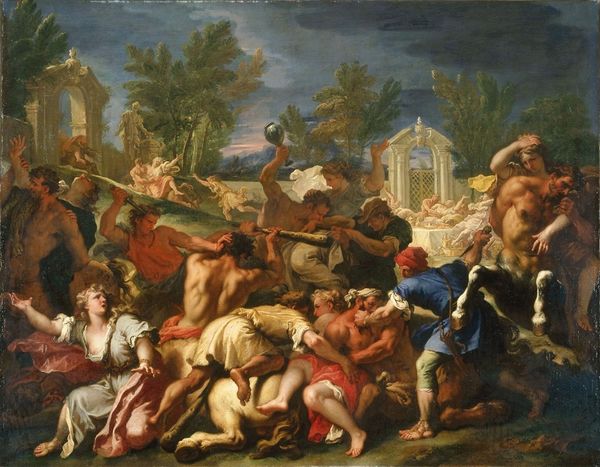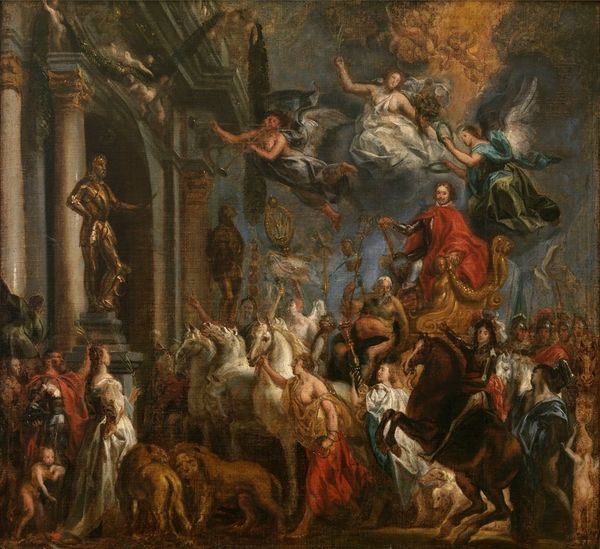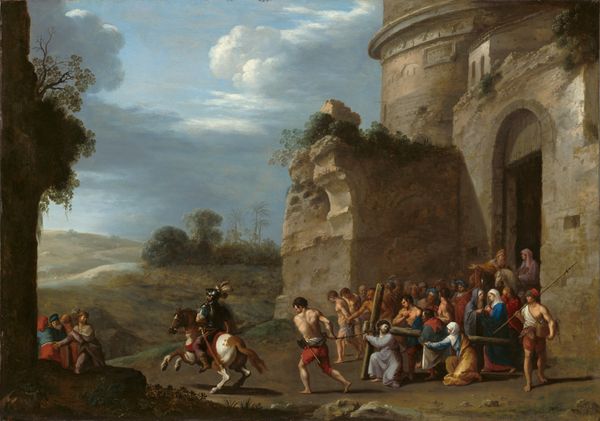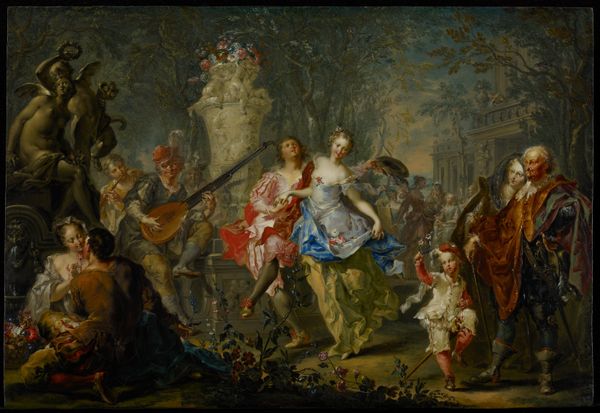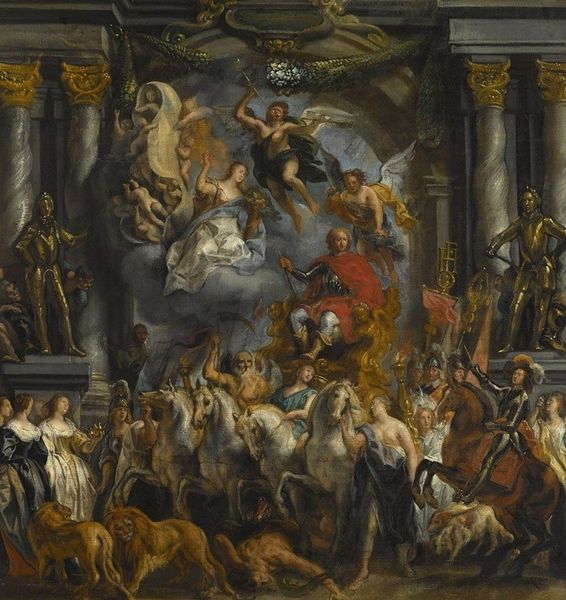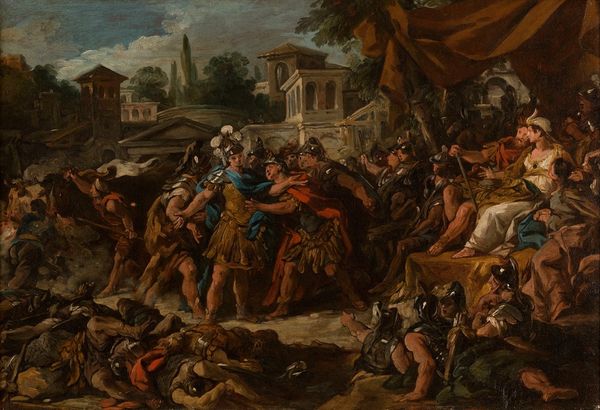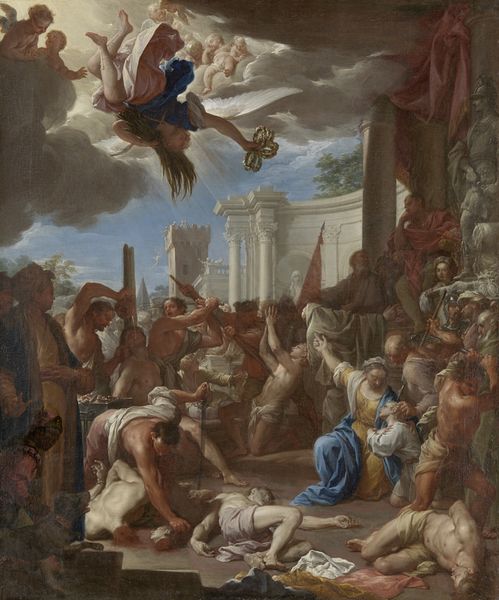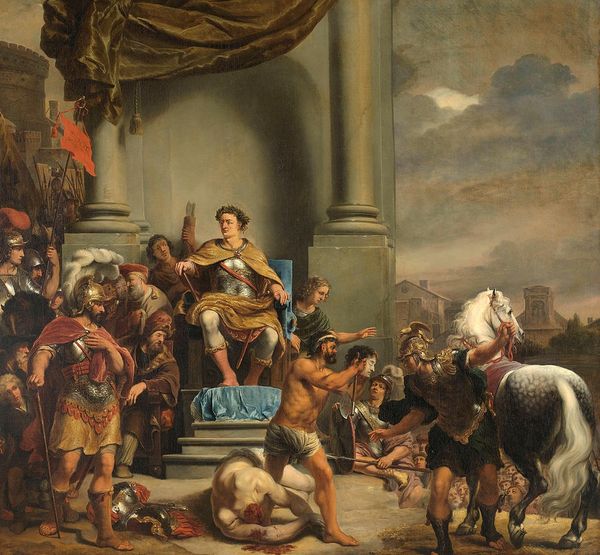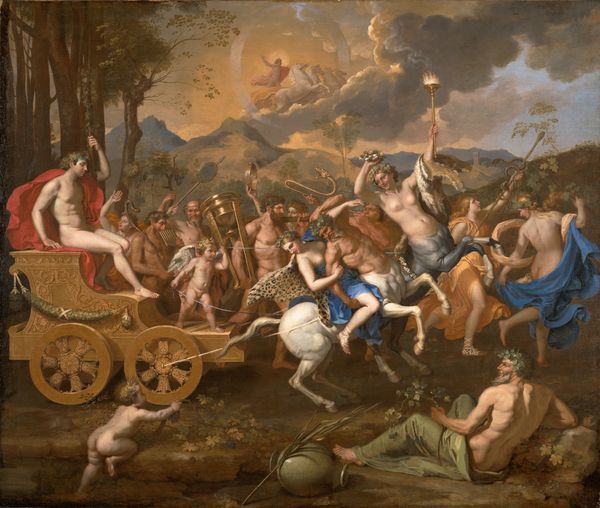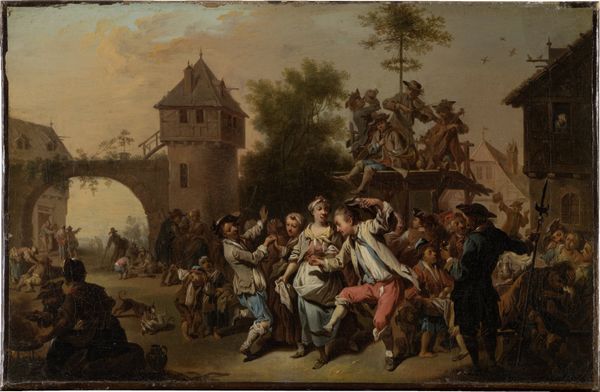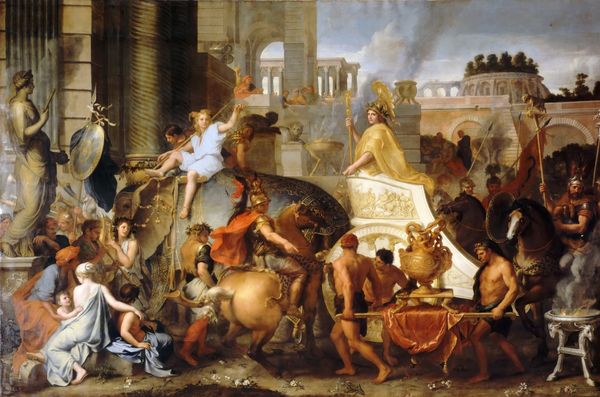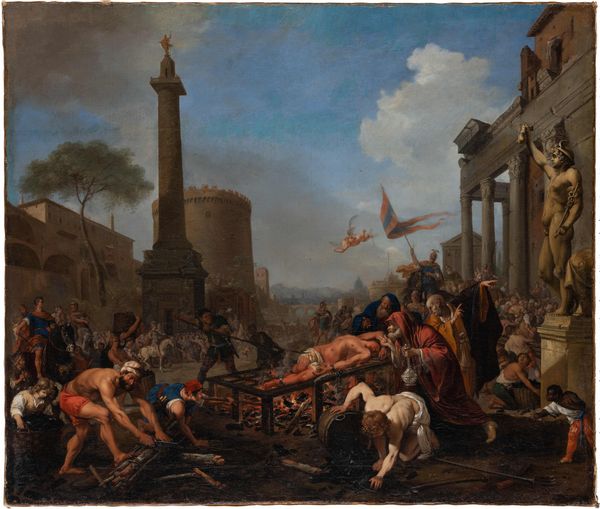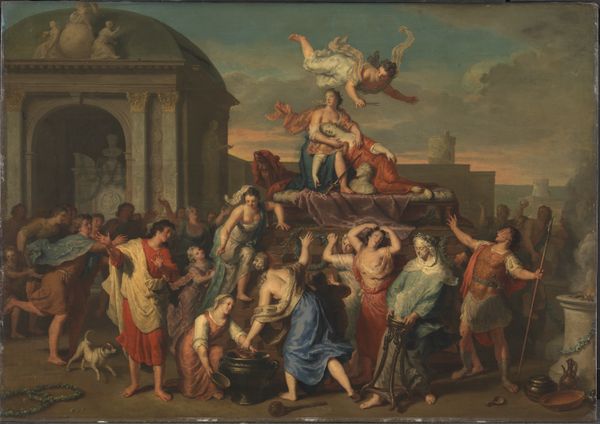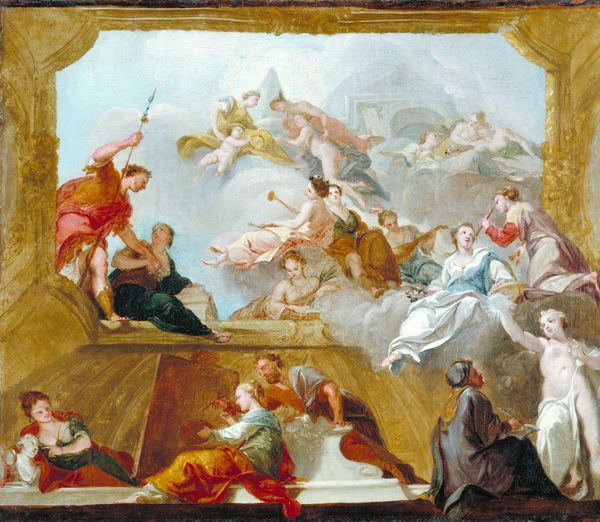
Allegory of the Triumphal Procession of the Prince of Orange, the Future King Willem II, as the Hero of Waterloo, 1815 1815
0:00
0:00
cornelisvaniicuylenburgh
Rijksmuseum
painting, watercolor
#
gouache
#
neoclacissism
#
allegory
#
painting
#
landscape
#
figuration
#
watercolor
#
coloured pencil
#
history-painting
Dimensions: height 185 cm, width 240 cm, depth 12.5 cm
Copyright: Rijks Museum: Open Domain
Cornelis van Cuylenburgh painted this large canvas in 1815, using oil paint – a fine powder mixed with linseed or walnut oil – and a variety of brushes. The classical allegory, rendered in fluid brushstrokes and luminous colors, uses a highly skilled technique. The artist built up layers of thin glazes to create a sense of depth and luminosity. This was not just about representing power; it was about manufacturing it, through the laborious application of artistic skill. The canvas itself would have been carefully prepared, stretched, and primed, a time-consuming task done by a studio assistant. Cuylenburgh uses his mastery to contribute to the political project of nation-building following the Napoleonic era, celebrating the Dutch Prince of Orange as a triumphant hero. The work is not just a representation of power, but the culmination of skilled labor and material transformation, reminding us that even seemingly straightforward images are the result of complex and often unseen processes.
Comments
No comments
Be the first to comment and join the conversation on the ultimate creative platform.
